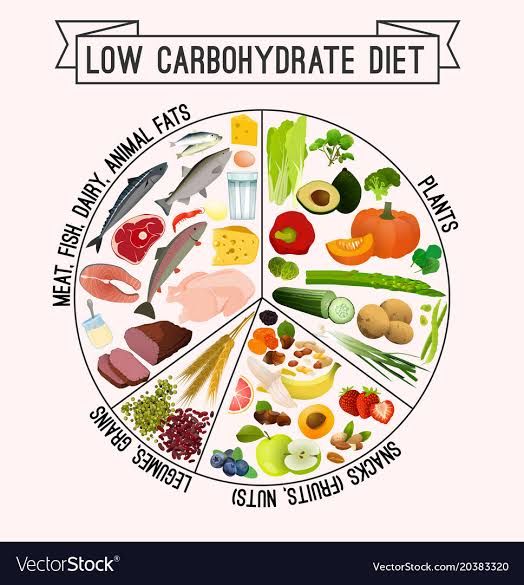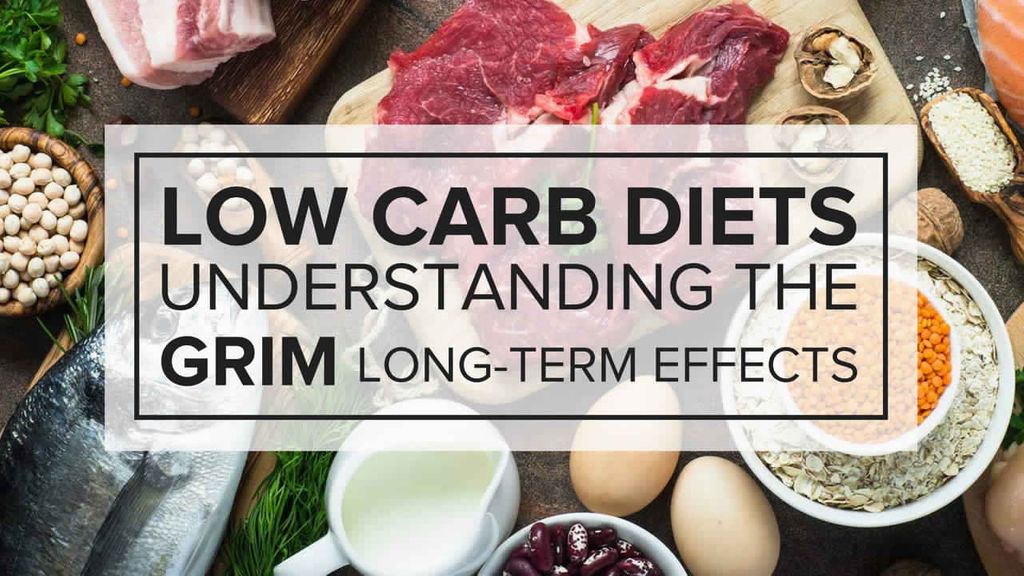Is Low Carb Diet Better Than Low Fat Diet?
Apr 08, 2019 • 116 views
A low-carb diet is generally used for losing weight. Some low-carb diets may have health benefits beyond weight loss, such as reducing risk factors associated with type 2 diabetes and metabolic syndrome.
But is it really useful and why should you choose a low carb diet? A high percentage of the fat lost on a low carb diet comes from the belly area and the liver. This is the dangerous visceral fat that builds up in and around the organs, driving inflammation and disease.

THE STARTING PHASE
In the first 1-2 weeks of low carb eating, people tend to lose weight very quickly.
The main reason for this is reduction in water weight. When insulin goes down, the kidneys start shedding excess sodium from the body. This also lowers blood pressure and the body stores carbs in the form of glycogen, which binds water in the muscles and liver. When carb intake goes down, glycogen levels in the body go down, and the water follows along.
HIGH PROTEIN
Increasing protein intake has many beneficial effects on health, particularly if you’re attempting to lose weight. Of all the macronutrients, protein increases satiation the most. This means a low-carb diet replete in protein can help control your appetite naturally. Numerous studies show thatproteincan reduce appetite, boost metabolism, and help increase muscle mass, which is metabolically active and burns calories around the clock.

RISKS ASSOCIATED
If you suddenly and drastically cut carbs, you may experience a variety of temporary health effects, including:
Headache
Bad breath
Weakness
Muscle cramps
Fatigue
Skin rash
Constipation or diarrhea
In addition, some diets restrict carbohydrate intake so much that in the long term they can result in vitamin or mineral deficiencies, bone loss and gastrointestinal disturbances and may increase risks of various chronic diseases.
Because low-carb diets may not provide necessary nutrients, these diets aren't recommended as a method of weight loss for those below 19. Their growing bodies need the nutrients found in whole grains, fruits and vegetables.
FINAL CONCLUSION
It's not clear what kind of possible long-term health risks a low-carb diet may pose because most research studies have lasted less than a year. Some health experts believe that if you eat large amounts of fat and protein from animal sources, your risk of heart disease or certain cancers may actually increase.
If you follow a low-carbohydrate diet that's higher in fat and possibly higher in protein, it's important to choose foods with healthy unsaturated fats and healthy proteins.
Some people don't accept that low diet works as it defies the calorie in calorie out model. But the truth is they boost your metabolism (increasing calories out) and lower your appetite (reducing calories in), leading to automatic calorie restriction.
Switching to low carb diet may not be a long term solution as risks associated to it are not yet found or discovered but it definitely works in the short term.
